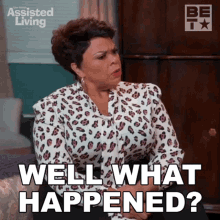Hi, I’m Kate. Ask an Author is an advice column for authors at all stages of writing, publishing, and hand-wringing. Have a question? Fill out this form and I’ll answer it in a future response!
I run Ask an Author entirely on donations, to keep information about writing and publishing free and available to all. THANK YOU to my paid subscribers who make this possible!! If you benefit from reading Ask an Author and are able to make a contribution, please consider supporting the work that I do. <3
Dear Kate,
Can you talk about what goes into a query letter? I know you only get one shot with an agent so I want to make sure I’m doing it right. I’ve looked through your past posts and didn’t think I saw this question answered, but apologies if it’s already been addressed (and maybe could you email me the link if it has?). THANK YOU!
- Query Newbie
Dear Query Newbie,
There’s lots of info in the archive around querying, including tips on when to start the process and avoiding rejection. But there’s no nuts and bolts on the query letter itself. So here it is!
A COMPREHENSIVE GUIDE TO THE QUERY LETTER, Ask an Author edition
This iteration will be focused on fiction, because most of you write fiction. If you send a question about how to write a book proposal for non-fiction, I’ll go over that in another response.
Here are the five elements that go into a query letter for fiction:
METADATA
COMPS
BLURB
PERSONALIZATION
BIO
With the exception of the bio, which comes last, the order is somewhat flexible and metadata/comps/personalization can be separated or can all go in one paragraph, before or after the blurb.
Let’s go through the components one by one.
Metadata
This is the relevant info about your book, including: TITLE (written in all caps), genre, and word count. It’s also called the housekeeping section. You can maybe add another clause adding more detail like the setting, central tropes, or a once-sentence hook, but it should be directly relevant to the novel and not read like padding or filler.
MY BOOK is a 90,000 word mystery set in the Scottish highlands.
MY BOOK is a 78,000 word YA romance about best friends and second chances.
MY BOOK is a 100,000 feminist speculative thriller that will appeal to fans of COMP TITLE and COMP TITLE.
Tips:
Know the standard word range for your genre. (You can Google this or ask me.) Manuscripts that are much longer or much shorter than current expectations have a hard time succeeding in the market.
Know your genre. Not sure what you’re writing? Read this post on genre. Then go read more books to figure out where yours fits on the shelf.
A “fiction novel” is not a genre.
Avoid generalizations. Anything you add to give the agent a sense of what the book is about should be short and specific. The danger here is meandering too much into general themes that could be about loads of books, not just yours.
Avoid editorializing. It comes across as amateurish (and annoying) to say how great the book is, inflate your description with adjectives, or say how much other people love it. Agents want to evaluate the strengths of the manuscript on their own.
Avoid negativity. Don’t tell the agent you aren’t sure if they’ll like it, or it’s been rejected 50 times already, or they probably won’t read it anyway. Querying an agent is like applying for a job. Keep it professional at all stages.
COMPARISON TITLES (COMPS)
I wrote a whole post on finding comps, so I’m just going to link to that here:
"How do I find comps?!"
What are comps? Why do you need them? Where do you find them? How do you use them?
A comparison title, or comp, is perfectly defined in your question: It’s a book that relates to your manuscript and that you compare your work to when pitching your book to agents and editors...
Comps are one more tool in your toolkit that you can use to give the agent a great pitch and signal what your book is like.
Tips:
Pick 2-3 titles.
Titles should be published within the last 3-5 years. If your comps are all 20+ years old, it doesn’t show the agent the sales potential for your book TODAY, and it can kiiiinda look like you haven’t read anything more recent and don’t know your genre super well.
If you use an older title, pair it with a newer book.
You can use a movie or TV show, but pair it with a book, too.
Choose books that weren’t all major blockbusters. Including a midlist book helps show you didn’t just pick something popular because it’s popular. You’ll stand out by not being the fifth comparison to GONE GIRL that the agent’s read that day.
Get specific in your comparisons. If a huge seller is the perfect title for you, illuminate something specific about that title to signal the connection, and/or pair it with another comp, too.
Use useful phrases to incorporate the comps into your query:
“will appeal to fans of _____”
“is like _____ meets _____”
“has the [description] of _____ and the [description] of _____”
“is like _____ but with [description]”
THE BLURB
This is a big one and the meat of the query. The blurb is a short paragraph or few paragraphs of around 100-300 words that describes what your book is about.
Introduce your main character and, briefly, their starting world at the opening of the novel. Who are they and what to they want?
Give the inciting incident. What happens in your novel to change that starting world and set the story in motion?
Now that things have changed for your character, what do they want now? Regardless of genre, it should be clear that your protagonist has a goal they want to reach (what they want) and a reason for reaching it (their motivations).
What’s standing in the way of reaching their goal? This is the conflict that drives the story forward.
What choices will your character have to make, especially as the conflict intensifies? What do they do in the novel?
Many successful queries take the reader through approximately the midpoint of the novel. They do NOT give away the ending (that’s what a synopsis does). The midpoint is when it seems like everything is going to work out for your character—until something changes. Or when it seems like all hope is lost for your character—until something changes. Leaving the query on this note of “will they reach their goal and what will happen if they fail????” is the kind of implied question that makes someone want to pick up your book and find out more.
The main issues I see when editing queries are blurbs that are too vague and/or blurbs that go into too much detail but the wrong kind of detail. This is a product of talking about the story, instead of telling the story. TELL US WHAT HAPPENS. Character + conflict = story.
Think of when you’re excited about a book and want to tell a friend to read it. “What’s it about?” they ask. You tell them the main protagonist and the main conflict they face. You might give a few interesting twists and turns, but you won’t give away the entire story. It’s hard to do this for your own work because you’re so close to it. But imagine you’re someone else encouraging a friend to read your book. What are the most important beats of your story? Character, setting, incident, consequence, incident, consequence, midpoint. These are the building blocks of your novel and they’re the building blocks of your query.
This isn’t about the themes. It goes beyond just the premise of the book. I wrote on premise vs story here, and it’s important to know the difference. You want to make sure your novel tells a story, and that your blurb tells the agent what that story is about.
Tips:
Aim for 200-250 words.
Include the protagonist, antagonist, and maybe one secondary character if relevant. You don’t need more characters than that.
Multi-point of view novels tend to work best focusing on one pov. In dual pov novels, you can focus on one pov or have one paragraph for each character.
Avoid editorializing. Don’t tell us the book is funny—make the query funny. Don’t tell us the book will rip your heart out—show through the central conflict that it’s going to be emotional. The blurb for a fast-paced thriller should be a different reading experience than the blurb for a cheery romcom.
Go back to the manuscript itself. Sometimes it’s hard to show what happens in the query because nothing really happens in the book. :/ Make sure you’ve nailed down your plot, stakes, and narrative engine (what drives the story forward) in the manuscript, and it really will be easier to distill that into the query.
Examples:
Ignore the editorializing in these pitches and zero in on the blurbs themselves:
INTO THE WOODS by Tana French
THE POSSESSIONS by Sara Flannery Murphy
THE MOTHERS by Brit Bennett
THE INCENDIARIES by R.O. Kwan
ANNIHILATION by Jeff VanderMeer
PERSONALIZATION
This is the sentence or two you use to indicate why you’re querying the specific agent you’ve chosen. It’s not essential—but like comp titles, it can give you a leg up.
You want to research agents thoroughly and send your query only to those you think will be a good fit. This takes time, but it’s better to put in this time and have a chance of success than send your work out to any agent with a pulse and then wonder why no one wants to read your book.
Did you see a tweet by the agent describing something that matches your manuscript? Read something on their Manuscript Wish List? Do they represent another book you love? Do they have a forthcoming book you can’t wait to read? Why are you querying them and not someone else? Have an answer, and put that answer in your query! It doesn’t have to be extensive, and it isn’t about kissing up to them. It shows know who the agent is and what work they do.
“I read in your bio that you’re looking for historical fiction set in the 20th century, and I hope my literary novel about two families in the 1960s will be of interest.”
“I read on your MSWL that you love speculative fiction grounded in the real world.”
“I was so gripped by the dark tension in [another title they rep] and hope you might be interested in my domestic thriller, TITLE, complete at [word count], that will appeal to fans of [comp title].”
“I’m querying you because of your interest in _____.”
“I read in an interview with _____ that you loved _____ and are looking for _____.”
Personalizing a query isn’t a guarantee. It can be frustrating to feel like you’ve nailed an agent’s MSWL, only to get back a form response. We don’t know what else is going on in an agent’s inbox—but while nothing I’m writing here is a magic bullet, it should help give your query an edge.
BIO
End your query with a short biographical note written in the first person. Include writing credentials if you have them. Leave them off if you don’t. Your bio should be short and written in a tone that reflects the book. This is still a chance to show off your writing! If your book is light and funny, your bio can be quirky, too. If you’re a doctor and you’re writing a medical thriller, mention that! If you’re a teacher writing for children, mention that!
The key with a bio is not to overstate it. Being a doctor doesn’t automatically make you an incredible author, which is why it should just be one sentence and come at the END of your query letter—it’s not the selling point. Lots of teachers and parents get into writing for kids, but again, that doesn’t by itself make someone a great writer, so it warrants a sentence at the end but not more and not elsewhere. Non-fiction is where your platform and non-writing credentials come into play, but for fiction, it’s all about the manuscript itself.
Some things you can include, if you don’t have writing credentials:
Where you went to school, if you did.
Your job.
Where you live.
If you’ve done something interesting and less common with your work or your life.
Some things to avoid:
Overexplaining your passion for your book’s topic. You wrote a whole novel, so it’s already assumed you care a lot about it!
Too much about your non-writing credentials, if they aren’t really relevant to the novel at hand.
It’s better to have a bio that’s too short rather than too long.
SALUTATIONS AND SIGN OFFS
Greet the agent as Dear First Name Last Name to avoid questions or errors about Mr./Ms./Mrs./Mx.
Each agency website will have specific information about how to query and what to include, including the number of sample pages and whether to add a synopsis. They’ll either have a website to use or a link to a form on Query Tracker.
If it’s via email, end your query saying “The first X pages are pasted below,” or whatever they’ve asked for. Don’t include an attachment if they don’t ask for one.
End saying “Thank you for your consideration.” Then give your name. And that’s it! No editorializing, no telling the agent you’re going to be the next big thing, no insisting they’ll be sorry if they don’t sign you. No apologizing and no self-deprecation. Just the information they need about your book, the information they need about you, and then whatever sample pages they ask for.
Your total word count for the query letter should be about 500 words, maybe less.
Have all your query materials handy and organized so you can just copy and paste what you need as you send things out.
Put the agent’s email in the “to” section LAST so you don’t inadvertaintly hit send too soon!
Give yourself plenty of time to write and edit your query. Have other readers give you honest, targeted feedback—preferably readers who understand what a query is and what it has to accomplish. Reach out to me here or at Broad Editorial if you want help with your query or with comps and agent research. More than anything, be patient with yourself and with the process.
Keep writing, keep querying, and good luck!
- Kate







